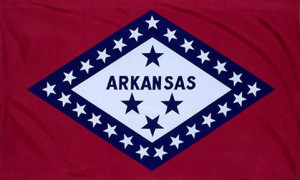 By Steve Brawner , © 2018 by Steve Brawner Communications, Inc.
By Steve Brawner , © 2018 by Steve Brawner Communications, Inc.
In American democracy, the gap between what is and what should be is often wide. But sometimes the ideal and the real converge, and when they do, it’s a beautiful thing. Such was the case in the Little Rock mayor’s race.
At a time when so many elections are a choice between the lesser of evils, Mayor-elect Frank Scott, Baker Kurrus and Warwick Sabin offered the opposite: a choice between the best of goods. Time magazine has its Person of the Year. They are my Arkansans of the Year.
Scott, Kurrus and Sabin each brought strengths to the campaign.
Scott was the “fusion” candidate who offered hope that a divided city could come together. He is a banker, a former highway commissioner, a preacher and a black man who lives in southwest Little Rock, and he embraces all of those identities without letting any one of them define him. Of the three candidates, he personified the most compelling vision.
Kurrus is an attorney, businessman and former Little Rock School District superintendent who projects both confidence and competence. If anyone could make Little Rock work, it would be he.
Sabin is a brilliant policy wonk with ideas spilling out of his ears. He’s a man of action who believes passionately but, as a state legislator, governed practically.
The thing about this race is that all three of them are strong in the areas where one might be the strongest. Like Scott, Kurrus and Sabin have compelling visions for the city. Like Kurrus, Scott and Sabin project confidence and competence. Like Sabin, Scott and Kurrus understand policy.
Throughout the campaign, the three engaged in a serious, substantive discussion about Little Rock’s future. Their mutual respect ennobled the entire process. Oh, things got a little snippy between Scott and Kurrus in the runoff’s closing days, but that’s understandable after a long, competitive campaign.
A quick story: I once was having a brief discussion with Kurrus after attending a lecture about homelessness at the Clinton School of Public Service when Sabin approached. I told Kurrus, “Here comes your opponent.” Sabin replied, “I’m not his opponent. We’re just running for the same office.” And then I left the two of them as they engaged in a friendly discussion.
Some outside central Arkansas might wonder why they should care about this race. The answer is that no matter where you live in this state – and I live just outside Benton – Little Rock matters to you. It’s the state’s capital city, and its largest. It’s the center of government, finance and medicine.
And while it’s a beautiful city with much going for it, it’s also struggling with long-running problems. Those include its too-high crime rate, a well-documented history of racial separation, and a school system under state takeover. Its problems cost you tax dollars and color the outside world’s image of our state.
One of Scott’s biggest challenges now that he’s elected mayor will be managing the expectation that he can fix all the problems listed in the preceding paragraph. He can’t. But Little Rock’s first elected African-American mayor at least has a chance to try. Let’s hope he taps into the talents of the two men he beat.
One other reason this race was so compelling was because the other major ones in Arkansas weren’t. We all knew that, at the state and national levels, the candidate with the “R” beside his or her name was going to win. Even the statewide initiatives wouldn’t be close, except the one for casino gambling.
So for political observers, this was the race to watch, and Scott, Kurrus and Sabin rose to the occasion. They offered compelling, competing and complementary visions of a better Little Rock. They brought nobility to the political process and honor to their own names. They gave voters someone to vote for rather than something to vote against.
For these reasons, they are an easy choice as my Arkansans of the Year.